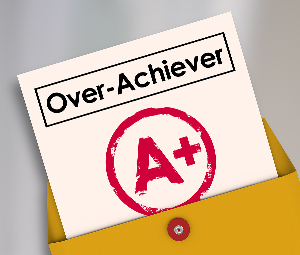Certain personality traits increase your chance of suffering from chronic pain. Interestingly, some of these same personality traits also raise your risk of developing cancer. Hmm . . . as a person who has had both, knowing this information gives me pause and reason to pay attention. It also gives me hope. Yes, hope, because this means that by changing certain personality traits, my wellness can be enhanced and my susceptibility to multiple ailments reduced. Therefore, altering personality traits equates to multiple health benefits. I can go for that. How about you?
What are Personality Traits?
The American Psychological Association’s definition of a personality trait is “a relatively stable, consistent, and enduring internal characteristic that is inferred from a pattern of behaviors, attitudes, feelings, and habits in the individual.” In other words, personality traits are how we typically act and relate to ourselves and others as well as our common emotional states. As examples, in my last blog titled, Am I okay to move and play?, I referred to the personality traits of putting pressure on myself and people-pleasing in the context of factors that can increase the likelihood of mentally derived pain. Fortunately, personality traits are not fixed, innate characteristics of the self.
In his book, When the Body Says No, Gabor Maté M.D., explains that personality traits are coping mechanisms or defense strategies that were developed in childhood as survival strategies. Hence, these characteristics evolved as a response to a person’s environment (nurture) and are not intrinsic traits (nature). These mannerisms grew out of necessity and served an important role, mainly keeping the child safe and attached to caregivers. However, continuing these behaviors into adulthood, most of which include minimizing the self, can become problematic and even physically harmful.
Further, Howard Schubiner, M.D., in Unlearn Your Pain, likens personality traits found in people with chronic pain to “a very strong ‘internal parent’.” He explains that the internal parent is the part of the subconscious mind that enforces obligations and duties while emphasizing care for others. The internal parent counteracts the internal child, which is focused only on the self. This powerful parental inner voice persuades us, often by using guilt and shame, to do for others, even if that means relegating our wishes, desires, and dreams . . .
Both medical doctors (Schubiner and Maté) agree that personality traits are formed in childhood at a subconscious level and can be changed. And they acknowledge that stress is what connects personality traits to pain or disease. The source of this stress is the conflict between what we want for ourselves and what we feel we should do according to the authoritarian voice in our minds.
The Personality-Stress Connection
Personality traits that contribute to chronic pain and cancer develop during our childhood as a reaction to difficult situations that provoke deeply felt negative emotions. Together, these memories and feelings are stored in the body. They can be triggered at any time, even unconsciously. According to Schubiner and Maté, it is these repressed emotions from our inner conflict (child vs. parent voices) that increase tension in the mind and body.
Schubiner describes an “overly sensitive autonomic nervous system.” If our nervous system and stress response are overly sensitive, it is akin to living on the edge or at a tipping point. With this heightened awareness, any little annoyance can unleash a stress response. Hence, one becomes stressed quicker, more often, more intensely, and for a longer period of time. Prolonged exposure to the stress response wreaks havoc on body chemistry, making pain and disease more probable. Read my blog, Stress Prevents Self-Healing, to learn more.
The Personality Traits
Below are some, but not all, of the typical characteristics of someone with chronic pain. As you read the list below, recall that these characteristics formed as survival strategies with the positive intention of keeping you safe and attached. Notice if there are any items in the list you disagree with. You may find yourself arguing for the value and benefit of some of the listed traits. There’s a good reason for that: some of these characteristics have worked well for you in the past and for a long time. Not only that, but many of them are also seen as admirable and rewarded. Who doesn’t want to be perfect? Not me–anymore. The problem is taking it too far. Many of these personality traits reduce and hurt the adult self.

- Guilt and Shame
- Self-criticism/Self-blame
- Low self-esteem
- High expectations for self
- Inability to say no
- Perfectionism
- Not standing up for self or others
- Holding emotions in
- Wanting to be good and liked
- Being hard on the self
- Putting self last
- Feeling worried and fearful
- Harboring anger or resentment
- Ignoring personal needs
- Time urgency
- Overly conscientious and responsible
Cancer patients may also exhibit these traits. More specifically, Maté has identified a cancer personality type that he refers to as Type C Personality, which he describes as “extremely cooperative, patient, passive, lacking assertiveness and accepting . . . represses ‘negative’ emotions, particularly anger, while struggling to maintain a strong and happy facade.” It is this internal emotional conflict between personal wants and needs (internal child) with the desire to appease others (internal parent) that generates stress and repressed emotions within the body. This can progress to pain and disease.
Changing Personality Traits
This can be done! It will take time and consistent work. What is common to all of the personality traits is undervaluing and reprimanding the self. Our self-talk consists of repeated scary messages being sent to the brain, including ideas like you are unworthy, in danger, not good enough, afraid, etc. The more your brain hears these messages, the more entrenched they become until they are solidified as beliefs. (Blog: Tap Into Your Subconscious Mind to Heal)
The antidote, then, is to send the brain the opposite information, messages of kindness and care. Tell yourself, you are important, you matter, you’re safe, you count, etc. Being nice to yourself might be foreign and initially hard, but it is important for your wellness. Read more in my blog, Practice Self-Compassion for Better Health.
 I have found the easiest way to send kind messages to myself is through guided daily meditations. I listen to different ones, but they all have the same theme, and most repeat the words “you are enough” at some point in the script. In addition, I monitor my self-talk and adjust my words as much as possible when I hear myself saying unfavorable, derogatory, or blaming language to myself.
I have found the easiest way to send kind messages to myself is through guided daily meditations. I listen to different ones, but they all have the same theme, and most repeat the words “you are enough” at some point in the script. In addition, I monitor my self-talk and adjust my words as much as possible when I hear myself saying unfavorable, derogatory, or blaming language to myself.
It has been a few months now. For the first time, I am noticing a difference in my thoughts, emotions, and actions as a result of my meditation practice. Just as pain neurotags can be rewired (Blog: Unlearn Your Pain with PRT), so can the neurotags for self-concepts and behaviors.
Summary
Personality traits that are linked to pain and disease developed as coping mechanisms in childhood because of negative events. Although necessary at the time, continuing with these self-limiting thoughts and actions can lead to dysregulation in the body. Emotional repression and over-giving of the self creates a conflict between the needs of the internal child and the internal parent. Frequently, personal desires are given up to please others, which generates inner stress, the true cause of the ailments. Changing these personality traits is possible and requires fostering a new relationship with yourself that is based on kindness and care.



